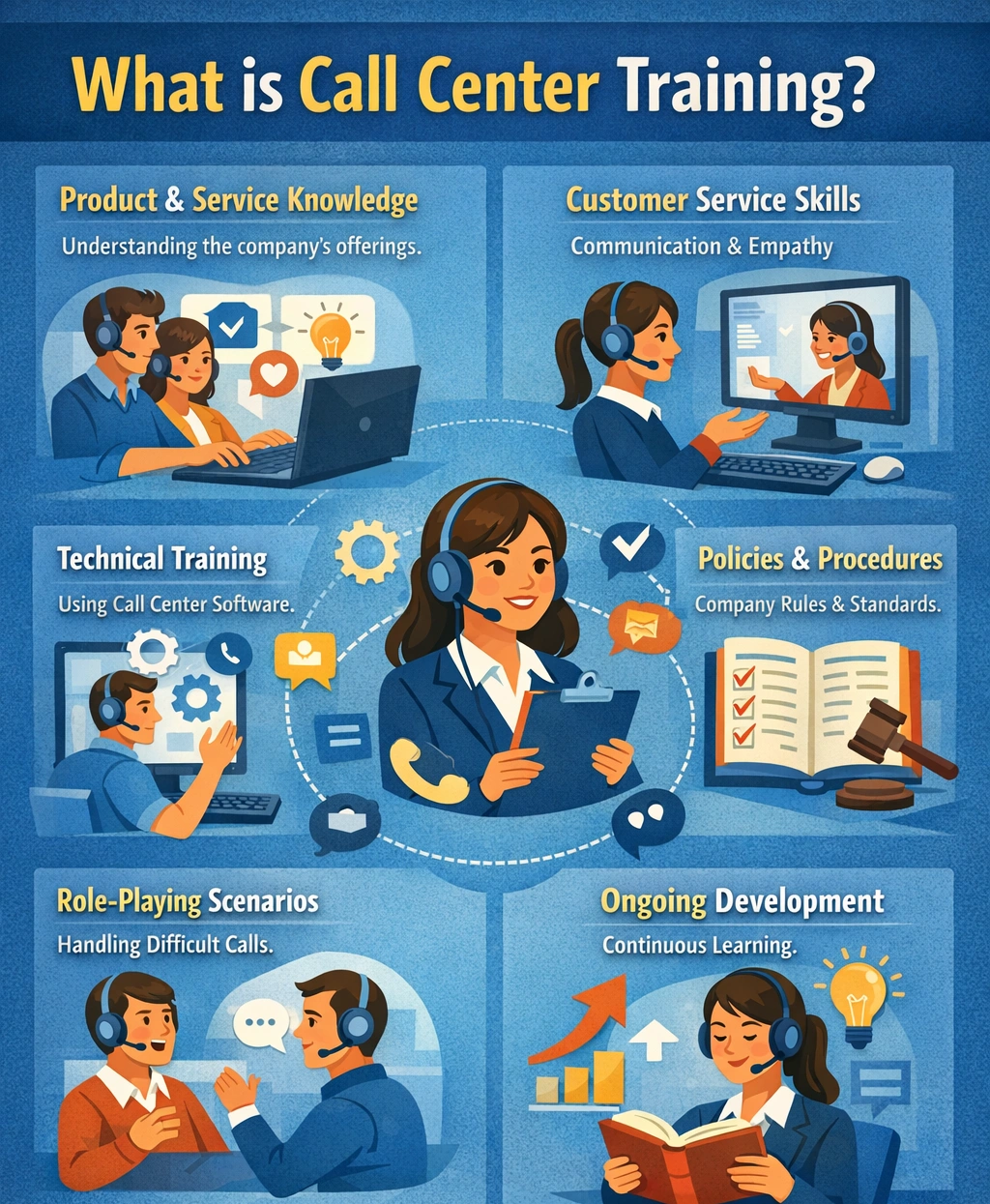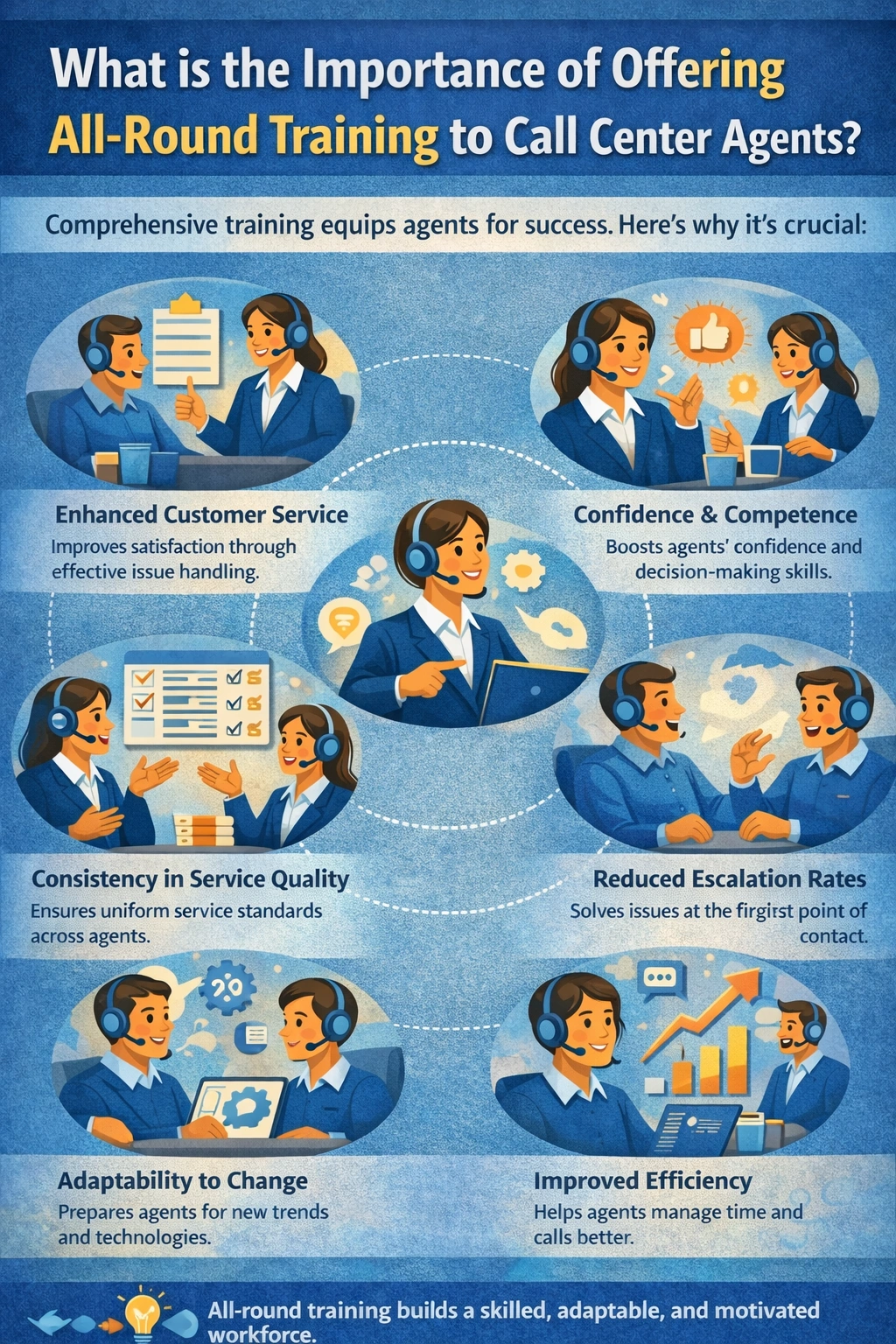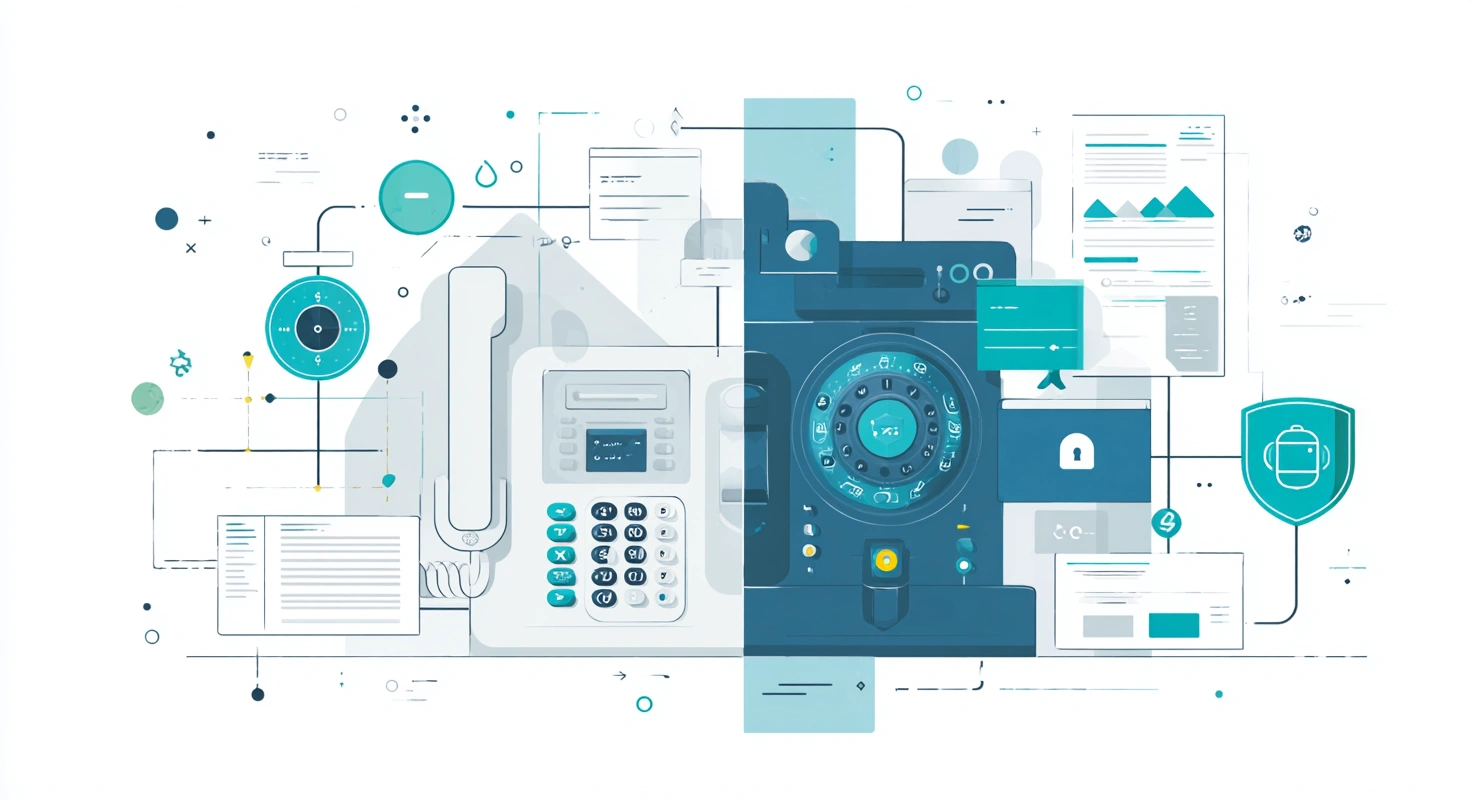Effective call center training goes beyond basics. By embracing unfamiliar techniques and all-round development, businesses can boost agent performance, reduce escalations, and improve customer satisfaction. Holistic training ensures agents are confident, adaptable, and aligned with service goals—ultimately driving a more efficient and customer-centric call center operation.
Build a Pro Team with Better Training.
What is Call Center Agent Training?
Call center agent training is a comprehensive program designed to equip agents with the necessary skills, knowledge, and tools to handle customer interactions effectively in a call center environment.

This training encompasses various aspects, including:
- Product and Service Knowledge: Agents receive thorough training on the company's products and services, ensuring they can provide accurate and detailed information to customers.
- Customer Service Skills: Focusing on developing essential skills such as communication, empathy, active listening, and problem-solving to enhance customer interactions and satisfaction.
- Technical Training: Equipping agents with the necessary knowledge to efficiently use call center software, telephony systems, and other relevant technologies.
- Company Policies and Procedures: Educate agents about the company’s operational guidelines, service standards, and ethical practices to ensure consistent and compliant service delivery.
- Handling Diverse Customer Scenarios: Using role-playing and scenario-based training to prepare agents for a variety of customer interactions, including handling difficult situations and complaints.
Ongoing Professional Development: Providing continuous training opportunities to keep agents updated on new products, services, and customer service techniques, fostering a culture of learning and improvement.
Unlock Proven Training Methods Now.
Ten Unfamiliar Call Center Training Techniques
Effective training is essential for success in the fast-paced world of call centers. While conventional call center training subjects and curricula provide a solid foundation, there are special, sometimes disregarded, tactics that can greatly increase the efficacy of your training initiative.
Here, we explore ten call center training suggestions that will help you approach your coaching from a new angle.
- Embrace Storytelling in Training
Beyond Facts and Figures: Incorporate storytelling into your training sessions. Real-life scenarios and stories make the learning process more engaging and relatable, helping agents understand and remember the concepts better.
- Incorporate Gamification
Learning Through Play: Gamify your training sessions. Introducing elements like points, badges, and leaderboards can make learning more interactive and enjoyable, boosting engagement and retention.
- Utilize Peer-to-Peer Learning
Leverage Collective Knowledge: Encourage experienced agents to share their insights and tips with new recruits. This peer-to-peer learning approach can foster a collaborative environment and provide practical, real-world advice.
- Focus on Emotional Intelligence
Beyond Technical Skills: Include emotional intelligence in your call center training topics. Training agents to recognize and manage their emotions, as well as empathize with customers, is crucial for handling challenging interactions.
- Implement Microlearning
Small Bites, Big Impact: Break down training content into small, manageable chunks. Microlearning is less overwhelming for agents and allows for better absorption of information.
- Role-Playing with a Twist
Realistic Scenarios: Regular role-playing exercises are standard, but try adding unexpected twists or extreme scenarios. This prepares agents for unusual or difficult situations they might encounter.
- Encourage Self-Led Learning
Empower Agents: Provide resources for self-led learning where agents can explore topics at their own pace. This encourages a culture of continuous learning and self-improvement.
- Utilize Virtual Reality (VR)
Immersive Experiences: If resources allow, use VR in call center training courses. VR can simulate real-life customer interactions and environments for a more immersive training experience.
- Feedback Loops
Continuous Improvement: Establish a system where agents can regularly provide feedback on the training they receive. This helps continuously refine and improve the training process.
- Holistic Health and Wellness
Caring for the Agent: Include training on managing stress and promoting wellness. A healthy and happy agent is more likely to perform better and provide excellent customer service.
These unique call center training tips go beyond the conventional approach, focusing on innovative, engaging, and holistic methods. By incorporating these strategies into your call center coaching, you can create a more dynamic, effective, and motivated team ready to meet the challenges of the call center world with confidence and skill.
Power Up Agent Skills with Training.
This blog is just the start.
Unlock the power of Convin’s AI with a live demo.

Why Is All-Round Training Important for Call Center Agents?
Offering all-around training to call center agents is essential for driving performance, consistency, and customer satisfaction.

- Enhanced Customer Service: Agents gain the skills to handle diverse inquiries, boosting satisfaction and loyalty.
- Higher Confidence & Competence: Well-trained agents perform better, make sound decisions, and feel more satisfied in their roles.
- Consistent Service Quality: Uniform training aligns agents with company policies and service standards.
- Lower Escalation Rates: Skilled agents resolve more issues on first contact, reducing the need for escalations.
- Greater Adaptability: Training on soft skills, products, and tech enables quicker adaptation to change.
- Improved Productivity: Efficient call handling and time management drive overall performance.
- Reduced Turnover: Investment in development increases retention and job satisfaction.
- Risk Mitigation: Compliance training helps prevent legal and regulatory issues.
Ultimately, all-round training builds a capable, confident, and adaptable team that supports high-quality service and operational success.
Schedule a Convin demo today!
Holistic Call Center Training to Achieve Greater Customer Satisfaction
Finally, by emphasizing creative, captivating, and all-encompassing techniques, these distinctive call center training suggestions go above and beyond the traditional strategy.
These techniques can help you develop a more dynamic, productive, and driven team that is equipped to handle the demands of the call center industry with assurance and competence.
Contact our experts to discover how a comprehensive call center automated coaching experience can help you unlock your agent's potential.
Frequently Asked Questions
1. What is AI in coaching?
AI in coaching uses artificial intelligence to analyze agent interactions and deliver real-time, personalized feedback. It helps improve skills, monitor performance, and automate training workflows at scale.
2. Which is the best call center training software?
Top solutions include Convin, Lessonly by Seismic, and Playvox. Convin stands out with real-time AI coaching, automated quality monitoring, peer learning, and personalized dashboards.
3. What do you do in call center training?
Call center training encompasses a range of skills, including communication, product knowledge, CRM usage, call handling, compliance rules, and soft skills such as empathy and active listening.
4. What are the 7 important call center skills every agent should have?
- Communication
- Active listening
- Problem-solving
- Patience
- Product knowledge
- Time management
- Multitasking
5. How can agents benefit from call center training?
Call center training enhances agents' skills, confidence, productivity, and customer service, while also promoting career growth and keeping them up to date on technology updates. This training reduces errors, resulting in a more efficient workforce and improved call center performance.









.avif)